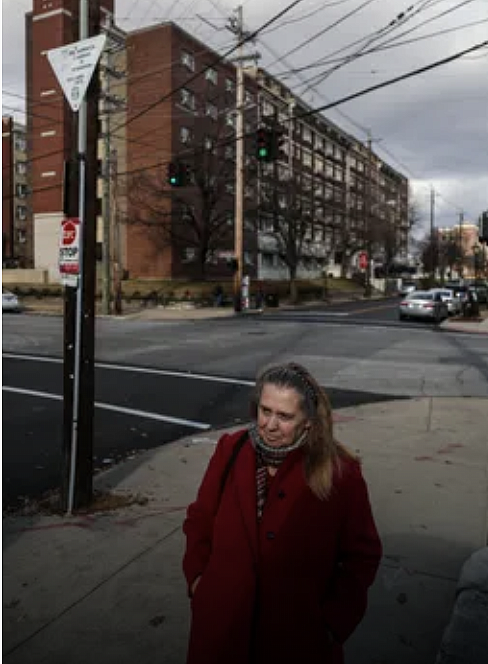Is crime driving grocery stores out of Louisville's low-income communities?
The Courier Journal's continued coverage of food insecurity in Louisville is supported by the University of Southern California Center for Health Journalism's 2018 National Fellowship.
Other stories in this series include:
Tell us: How do you get food where you live in Louisville?
Dare to Care relocation may bring job training, grocery to the West End
Shelby Park's Save-A-Lot closed with little warning to neighbors
Sorry, we're closed: How everyone is hurt when grocery stores shut down
In 30 seconds: What you should know about food deserts in Louisville
Tuition or food? How college kids use food pantries to help food insecurity
Louisville has a fresh food problem. Can we fix it?
'A real crisis in Louisville': Readers respond to food desert series
How a low-income Louisville neighborhood became a fresh food oasis
How can cities end food deserts? Here are 4 solutions that worked
Louisville families shouldn't be struggling to find fresh food
No grocery store in your neighborhood? Join forces to create one
People can't get to a grocery store easily. So these volunteers are driving them
Would you shop at a mobile grocery store? Kroger is betting on it
Where You Live Determines How Much Your Eggs Cost at Kroger
How some residents get their food in Louisville's food deserts
Can indoor farming fix food deserts? These Louisville students think so
Kentucky's hunger initiative earns national attention. But thousands still need food
How these Louisville companies are helping employees buy affordable fresh produce
Can indoor farming fix food deserts? These Louisville students think so
Kentucky's hunger initiative earns national attention. But thousands still need food
How these Louisville companies are helping employees buy affordable fresh produce
Downtown Louisville is growing rapidly. So why doesn't it have a grocery store?

Matt Stone/Louisville Courier Journal
Seven years ago, grocery operators James and Greg Neumann were on the verge of opening a store in west Louisville when they decided to hire uniformed security guards for the first time in their company's history.
Until then, the owners of ValuMarket had stocked their stores with undercover security who could keep an eye out for theft without drawing notice.
But in the lower-income Park DuValle neighborhood, the owners presumed the new store would face higher instances of crime, and they chose to enlist uniformed security as a safety precaution for both their customers and employees.
"I can honestly say we've learned this the hard way: We knew nothing about Park DuValle," said James Neumann, vice president of the family-owned grocery company. "We were completely ignorant of the neighborhood.
"My East End view was we're going to have crime. My real view after I got there was it's no worse than anywhere else."
Downtown Louisville is growing rapidly: So why doesn't it have a grocery store?
Since 2015, several grocery stores have closed in lower-income communities, with some attributing the cause to the areas' higher crime rates.
But a review of Louisville Metro Police crime reports shows that theft, fraud and other crimes occur at grocery stores in all neighborhoods, regardless of average income.
To analyze crime at grocery stores, the Courier Journal pulled almost 10 years of incident report information from the city's open data website.
The grocery store with the most police reports was a Kroger at 2710 W. Broadway in the Parkland neighborhood, where police were dispatched almost 2,000 times between January 2010 and June 2019.
The store with the second most police reports: a Kroger at 3165 S. Second St. near the University of Louisville, where police were dispatched nearly 1,000 times.
Poverty rates around the two stores were 45% and 29.4%, respectively, according to the most recent five-year estimate from the U.S. Census Bureau.
Louisville police data likely does not show every instance of crime that takes place in a grocery store.
But it does provide a sense of how stores that serve different demographics might compare.
For instance, the number of crime reports from another Kroger in the Portland neighborhood, where the poverty rate was 37.2%, was similar to the number of reports from a Kroger on Bardstown Road, where the poverty rate was 7.4%.
Both Kroger and Louisville Metro Police declined to be interviewed for this story.
"There's an enormous amount of theft that happens in grocery stores," Neumann said. "I don't care if you're in Outer Loop, Hurstbourne or the West End, you're going to have theft and you're going to have crime.
"The thing that impressed me so much (about Park DuValle) was how nice the families were. We never had a violent crime happen, we never had a stickup. We were there four years."
In 2016, the Neumanns sold the First Choice Market to a company in Jasper, Indiana, which later switched it to a Cash Saver-branded grocery that's still open today.
Neumann said the store never met its sales goals, but theft and security costs aren't what led to the sale.
"To us, it's not a matter of who's shopping, potential criminal activity or the amount of food stamp business," he said. "What are the raw potential sales goals of a spot? It didn't report high enough, and it proved it wasn't high enough when we operated the store. I don't think the rest of it matters."
Neumann said his experience at the Park DuValle store ended up changing his view of west Louisville's neighborhoods.
"Yes, more of my customers were lower income," he said. "Yes, probably in the immediate1-mile area, there was a higher percentage of African Americans.
"I'm glad I got to experience it. It took me out of my bubble and changed my perception of the area, completely."
Read this: How can cities end food deserts? Here are 4 solutions that worked
Bailey Loosemore: 502-582-4646; bloosemore@courier-journal.com; Twitter: @bloosemore. Support strong local journalism by subscribing today: courier-journal.com/baileyl.
[This story was originally published by Courier Journal.]

